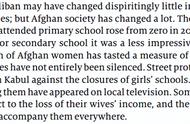初中英语同义句转换方法大全
同义句转换(改写同义句)属于考察英语句型转换的范畴。同义句转换有很多方法,例举常见的方法如下:
1.替代法
1.1. 用同义词或短语替代: 将原句中的一些关键词替换成具有相似意义的词语。
例如:
原句:The weather is nice today.(今天天气很好。)
同义句:The weather is pleasant today.(今天天气很好。)
原句:The news spread all over the town within minutes.(消息在几分钟内传遍了整个城镇。)
同义句:The news spread throughout the town within minutes.(消息在几分钟内传遍了整个城镇。)
原句:We had a good time at the beach, building sandcastles and playing in the waves.(我们在海滩上度过了愉快的时光,筑沙堡并在海浪中嬉戏。)
同义句:Despite the rain, we enjoyed ourselves at the outdoor concert.(尽管下雨,我们在户外音乐会上玩得很开心。)
常见的同义词:
nice(友善的)-pleasant(愉快的)。
happy(愉快的)-joyful(充满喜悦的)
sad(悲伤的)-unhappy(不开心的)
big(大的)-large(巨大的)
small(小的)-little(微小的)
hot(热的)-warm(温暖的)
cold(冷的)-chilly(寒冷的)
fast(快的)-quick(迅速的)
slow(慢的)-sluggish(缓慢的)
smart(聪明的)-intelligent(智慧的)
stupid(愚蠢的)-dull(迟钝的)
brave(勇敢的)-courageous(有勇气的)
scared(害怕的)-afraid(恐惧的)
mean(刻薄的)-cruel(残忍的)
rich(富有的)-wealthy(富裕的)
good(好的)-excellent(优秀的)
bad(坏的)-poor(贫乏的)
beautiful(美丽的)-attractive(吸引人的)
ugly(丑陋的)-unattractive(不吸引人的)
happy(快乐的)-content(满足的)
angry(生气的)-furious(愤怒的)
tired(疲倦的)-exhausted(精疲力尽的)
eager(渴望的)-enthusiastic(热情洋溢的)
loud(大声的)-noisy(嘈杂的)
quiet(安静的)-silent(寂静的)
difficult(困难的)-challenging(具有挑战性的)
easy(容易的)-simple(简单的)
friend(朋友)-pal(伙伴)
nice(友善的)-kind(亲切的)
同义短语举例(几乎所有的短语都有同义语):
look forward to - anticipate (期待)
原句:I look forward to meeting you.(我期待着见到你。)
同义句:I anticipate meeting you.(我期待着见到你。)
give up - abandon(放弃)
原句:Don't give up on your dreams.(不要放弃你的梦想。)
同义句:Don't abandon your dreams.(不要放弃你的梦想。)
set up - establish建立
原句:We need to set up a new system for this.(我们需要为此建立一个新的系统。)
同义句:We need to establish a new system for this.(我们需要为此建立一个新的系统。)
Take care of - Attend to(照顾)
原句:She takes care of her younger brother.(她照顾她的弟弟。)
同义句:She attends to her younger brother.(她照顾她的弟弟。)
1.2. 用反义词或短语替代
原句:The library is usually quiet.(图书馆通常很安静。)
同义句:The library is usually not noisy.(图书馆通常不吵。)
原句:Don't forget to lock the door before leaving the house.(不要忘记在离开房屋之前锁门。)
同义句:Remember to lock the door before leaving the house.(记得在离开房屋之前锁门。)
原句:My computer doesn't work properly.(我的电脑无法正常工作。)
同义句:Something is wrong with my computer.(我的电脑出了问题。)
1.3. 短语替代从句
如果原句含有状语从句、定语从句,宾语从句等,可用现在分词、过去分词、不定式短语、和介词短语等来替代。
原句:While waiting for the bus, she read a book.(在等车的时候,她读了一本书。)
同义句:Waiting for the bus, she read a book.(在等车的时候,她读了一本书。)
原句:We can't achieve success without your support.(如果你不支持我们,我们无法取得成功。)
同义句:We can't achieve success if you don't support us.(如果你不支持我们,我们无法取得成功。)
原句:When he was sixteen, he learned to play the guitar.(当他十六岁时,他学会了弹吉他。)
同义句:At the age of sixteen, he learned to play the guitar.(当他十六岁时,他学会了弹吉他。)
2. 合并法
2.1. 用并列连词合并
用并列连词将两个简单句连接起来。常用的并列连词有both...and...,not only...but also..., either...or...,neither...nor..., 等。
原句:Mary attended the party. John also attended the party.(玛丽和约翰都参加了派对。约翰也参加了派对。)
同义句:Both Mary and John attended the party.(玛丽和约翰都参加了派对。)
原句:The teacher didn't knew the news.The students didn't knew the news either.(老师不知道答案。学生也不知道答案。)
同义句:Neither the teacher nor the students knew the answer.
(老师和学生都不知道答案。)
2.2. 用从属连词合并
用从属连词将两个单句合并为一个复合句。常用的从属连词有so...that..., so that..…, not...until..…, as soon as, if等。
原句:The teacher explained the complex math problem in detail. And then students understood it .(老师详细解释了这个复杂的数学问题,学生们才明白。)
同义句:The students didn't understand the complex math problem not until the teacher explained it in detail.(直到老师详细解释了这个复杂的数学问题,学生才明白。)
原句:She spoke very softly. We could barely hear her.(她说话声音很轻。以至于在礼堂后排我们几乎听不到她。)
同义句:She spoke so softly that we could barely hear her.(她说话声音如此之轻,以至于们几乎听不到她。)
3. 直接引语变间接引语。
直接引语改为间接引语,要对人称、时态、时间和地点状语等作相应的逻辑变化外,有时还要动词的谓语与非谓语动词形式之间进行转换(尤其在转换祈使句时):
3.1. 直接引语为陈述句时,用连接词that转为间接宾语从句:
原句:She said, "I will come to the park if I finish my work on time." (她说:“如果我准时完成工作,我会来公园。”)
同义句:She said that she would come to the park if she finished her work on time.(她说如果她准时完成工作她会来公园。)
3..2. 直接引语为疑问句时,用连接词weather或if转为间接宾语从句:
原句:She asked, "Will it rain tomorrow?"(她问:“明天会下雨吗?”)
同义句:She asked whether/if it would rain tomorrow.(她问明天是否会下雨。)
原句:He inquired, "Did you finish the project?"(他询问:“你完成了这个项目吗?”)
同义句:He inquired whether/if she had finished the project. (他询问她是否完成了这个项目。)
原句:They wondered, "Has she visited that museum before?"(他们纳闷:“她以前参观过那个博物馆吗?”)
同义句:They wondered whether/if she had visited that museum before.(他们纳闷她是否以前参观过那个博物馆。)
3.3. 直接引语为祈使句时,用动词短语tell/request/ask/order sb. (not) to do (sth.)的结构,或suggest doing sth.结构,转为宾语从句:
原句:The teacher said, "Please close the windows." (老师说:“请关上窗户。”)
同义句:The teacher asked the students to close the windows.(老师要求学生们关上窗户。)
原句:He said, "Don't be late for the meeting."(他说:“会议不能迟到。”)
同义句:He told them not to be late for the meeting.(他告诉他们不能迟到会议。)
原句:She suggested, "Let's have a break." (她建议:“我们休息一下。”)
同义句:She suggested having a break. (她建议休息一下。)
4. 转换法
4.1. 句型转换
初中常考句型:
4.1.1. sb. spend some time/money doing sth.(某人花费一些时间/金钱做某事。)与lt takes sb. sometime/money to do sth.(做某事花费某人一些时间/金钱)的转换:
原句:She spent a lot of money repairing her car.(她花了很多钱修车。)
同义句:It took her a lot of money to repair her car.(修车花了她很多钱。)
原句:He spends hours playing piano every day.(他每天花几个小时弹钢琴。)
同义句:It takes him hours to play piano every day.(弹钢琴每天花费他几个小时。)
4.1.2. too...to...(太......以至于不能...)有两种转换化句型:
4.1.2.1. too...to...与so...that...can't do sth.的转换(主句的形容词或副词不变):
原句:She is too tired to finish the work.(她太累了,以至于不能完成工作。)
同义句:She is so tired that she can't finish the work.(她太累了,以至于不能完成工作。)
或者句型2,
4.1.2.2. too...to...与not...enough to do sth.的转换(主句的形容词或副词改为反义词):
原句:She is too tired to finish the work.(她太累了,以至于不能完成工作。)
同义句:She is not energetic enough to finish the work.(她没有足够的精力完成工作。)
4.2. 语态转换法
语态的转换包括主动语态和被动语态。主动语态中,主语是动作的执行者,而在被动语态中,主语是动作的承受者。
4.2.1. 主动语态转为被动语态:
原句:She writes a letter.(她写了一封信)
同义句:A letter is written by her.(一封信被她所写。)
4.2.2. 被动语态转为主动语态:
原句:The book was read by him.(这本书被他所读。)
同义句:He read the book.(他读了这本书。)
5. 综合表述法
通过对1个或多个原句的理解,换一种说法进行表述。
原句:Alice is six years old. Charlie is six years old as well.(艾丽斯六岁了。查理也是六岁。)
同义句:Alice is as old as Charlie.(艾丽斯和查理一样大。)
原句:Li Hua arrived at school at 6 o'clock. I arrived at school at 7 o'clock.(李华6点到学校。我7点到学校。)
同义句:Li Hua arrived 1 hour earlier than I do.(李华比我早到学校1小时。)












